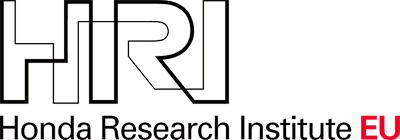Carbyne Stack Ecosystem¶
Robert Bosch GmbH started the Carbyne Stack open source project in September 2021 by contributing an internally developed code base, and now maintains the project and contributes regularly. Carbyne Stack is used by Bosch to conduct proof-of-concepts in multiple domains with various partners.
The Honda Research Institute Europe (HRI-EU) researches future technologies advancing cooperative intelligent systems that will shape our future in many ways, ranging from autonomous and accident-free driving to personal robots and from smart design and manufacturing to the privacy-preserving use of data. The privacy of users and customers is one of HRI's essential goals, and they aim to live up to the trust of their customers. HRI-EU contributes together with academic and innovative partners to Carbyne Stack to implement this vision.
From quantum technologies and blockchain, to cryptofinance and beyond, SAP is continuously exploring new ideas, business models and pioneering technologies to shape the next generation of enterprise software, deliver real-world innovation, and enable sustainability. SAP Security Research is using Carbyne Stack in the Glaciation EU Horizon Europe publicly funded project and additionally explores the potential of secure multi-party computation for various use cases, that are currently limited by security and privacy concerns. SAP contributes to Carbyne Stack in the areas of usability and operations.
University of Technology Sydney, Bosch, and Food Agility CRC have joined forces to work on the publicly funded project Collaborative privacy-preserving Digital Agriculture. One research track is focussing on Federated Learning with MPC-based hardware-accelerated secure aggregation. The research results will eventually be implemented by a UTS engineering team based on Carbyne Stack.



